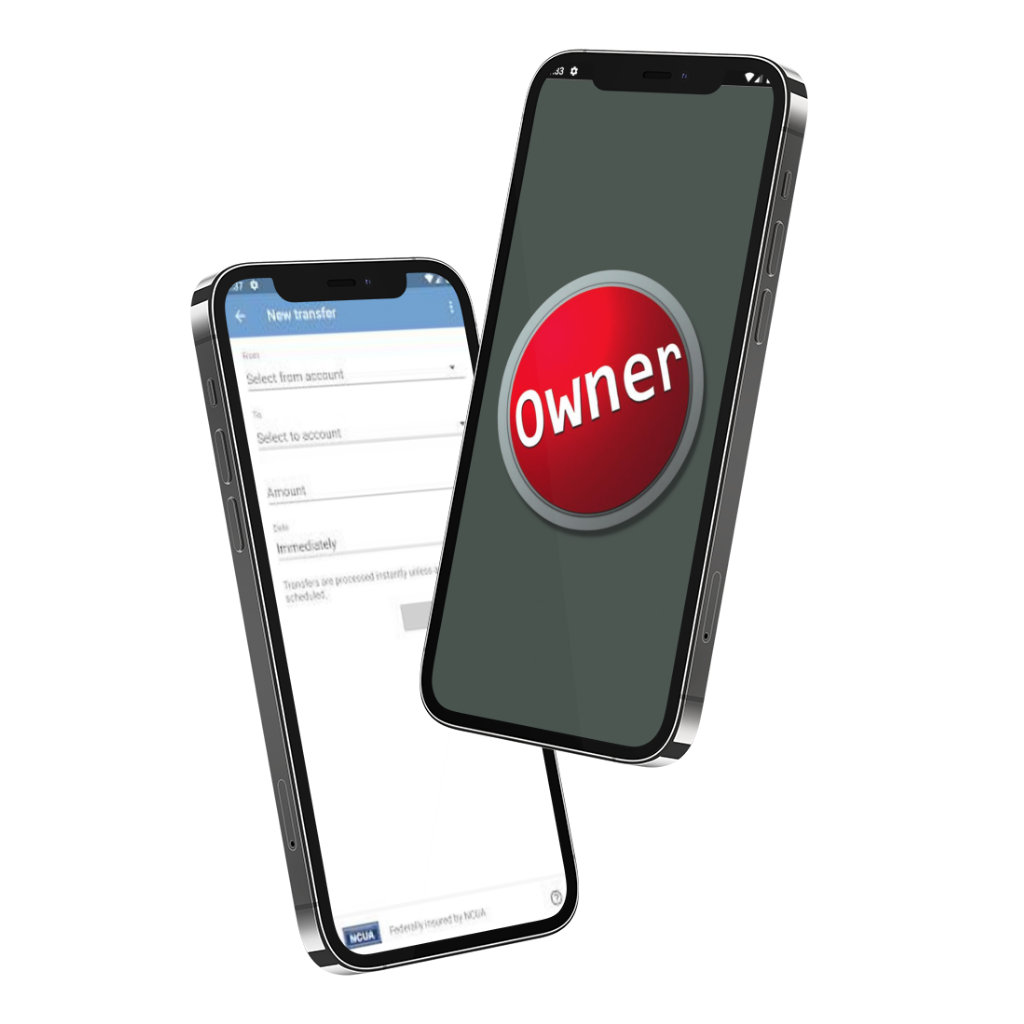If personal finances are stressing you out at college, you are not alone. You might have had a job and a custodial account back in high school, but making a budget and managing your own finances can be a daunting part of adulting. A recent survey found that 53% of college students say money management is their biggest challenge.1
When you are heading off to a university, college, or tech school this year, whether this is your first time living away from home or you are a returning student, this money saving guide for college students can help ensure you have plenty of money to last the entire school year—and maybe even finish the semester with a stack left over in your share savings and checking accounts!
1. Make a Simple Budget (It’s Easy!)
We have to start with recommending you make a budget because it is the best way to get control of your spending by making a plan. You can use apps to make and track budgets easily, but a digital or paper notepad will work to get started.
Make a list of regular monthly expenses and compare this to your monthly income. This will tell you how much “discretionary” or flexible income you have available to spend. Then break down how you want to spend that money, too, such as entertainment, shopping, or dining out.
Your school year budget is unique to your situation, but if you are looking for some baseline numbers, many people use the 50-30-20 rule. That means planning to spend 50% of your income on paying for college, rent, utilities, groceries, and other necessary expenses. You would budget 30% toward flexible expenses like eating out, cable subscriptions, and gym fees. The remaining 20% goes to savings.
2. Track Your Actual Spending Against the Budget
You’ve got a solid plan and then real life happens. So how are you actually spending your money? Why are your savings for college disappearing so rapidly? Tracking your spending against your budget helps you rein in splurges and find those hidden costs you missed in your budgeting.
When you focus on where your money is going, you can protect important assets like your savings. You can find more ways to earn money or make compromises that, in the end, will make you feel more confident and secure about your finances. Even if you are not working and you are given a monthly spending allowance, it is still important to set part of this money aside in a savings account each month, so you will have a “rainy day” fund for financial security.
3. Be Realistic with Your Needs and Wants
Sure, being away from home can be a whole new experience because there is no one telling you how to spend your money or to start saving for college. Sometimes we shop out of boredom or keep paying for expensive services out of habit. Being real about what you actually need vs. things you want will empower you to keep your college expenses in line.
Keep in mind that there are businesses out there that target those attending college with to-good-to-be-true offers of low credit payments and rent-to-own flat screen home theater systems. Saving the money and paying a discount student cash price is always a better way to get a big ticket item or spring break on a budget.
4. Stay Free of Fees
When your money situation gets tight it can be tempting to let bills pile up. Late fees rack up much faster than you might expect, and a single missed payment can send a store credit or student loan payment through the roof. You may never be able to return to the low interest rate they offered when you made the purchase.
If you do use credit, work with your credit union to get a card with reasonable rates and pay it off each month to build a strong credit score. A free checking account will give you access to a debit card, but it is still possible to get an overdraft charge that will be a budget setback, so check your balances often.
5. Don’t Get Burned by Books
While textbooks are a qualifying education expense, heading to the campus bookstore and purchasing everything on the course list can be a huge investment. One of the best ways to save money in college is to keep book buying to a minimum. Go to the first class before purchasing books. Sometimes your professors will decide they are not using all the “recommended” books for a course or may offer digital options.
During the first class, you can inquire to see if a previous edition or downloaded version would be acceptable for the course. Avoid buying brand new textbooks by choosing used copies you find online or looking into digital textbook rental services. At the end of the semester, be sure to sell your used textbooks back to the bookstore or, for a better return on investment, sell them to fellow students at the start of the next semester.
6. Get the Most from Your Meal Plan
A college meal plan can be a reliable resource and eliminates most of your grocery budget. Never be embarrassed to get the most out of the plan you paid for. If you are paying for two or three meals a day, plan to hit the dining hall on time, so you won’t be tempted to order pizza later. Grab a coffee to go and snag extra snacks like fruit, bottled juice, boiled eggs, cookies, or dried cereal to cover midnight study breaks or mad dashes to your first class.

7. Learn to Cook What You Like to Eat
If you aren’t on a meal plan, or even if you are, learning some simple recipes for things you love to eat is far more cost-effective than ordering out. Homemade pizza, egg rolls, stir fry, or toasted hoagies are healthier, less expensive, and get your creative juices flowing. Crock pot recipes are simple to prepare and ready when you get out of class.
Follow along with a cooking video and impress your roommates with delicious home-style meals. You can band together as a group to plan potlucks or family style dinners from the grocery store. Cooking at college also keeps you on task with studying and out of expensive places where you might linger longer than you intend.
8. Dig Deep into Discounts
Carry your student ID with you and make a habit of asking for student discounts. Check your student newspaper and local shopper for coupons on entertainment, travel, dining out, and local activities. Online platforms and apps can alert you when something on your wishlist goes on sale or has coupons available. Buying in bulk and looking for BOGO deals can really stretch your student budget.
9. Take a Hard Look at Technology Services
Paying for cable or satellite TV service puts a huge hole in your disposable income each month. Streaming alternatives with a free or less expensive internet service can save you big bucks and still keep your entertainment needs met. Your high-priced cell phone plan deserves a good look, as well, because there are almost certainly reliable and inexpensive plans available in the places you attend school.
10. Make Time for Organized Campus Events
Why should you purposely make time to attend campus social events and meetings throughout the year? Not only is useful information shared and networking taking place, but there is almost always free food available. Look for announcements online in your student portal, signs and flyers outside, or email updates from your favorite campus groups. Then show up for spaghetti feeds, pancake breakfasts, and free pizza.
These free and low-cost events will help you make friends and stay involved in your campus community. Movie nights and gamers clubs sponsored by colleges and universities are great replacements for high-priced entertainment found elsewhere. Being involved in clubs and volunteer groups in college also looks great on your first job resume.

11. Work Out on Campus
Want to prevent the fabled college weight gain? Forget your old fitness center with a monthly membership fee, when you enroll in college, because the campus gym, pool, and fitness center are probably available to you at little or no cost. Sports like cross country or rowing might even be classes you can take for credit, and fitness groups probably meet on campus for activities like hiking or Tai Chi.
12. Keep Applying for Scholarships and Grants
Maybe you applied for financial aid, grants, and scholarships during your last year in high school, and haven’t looked into new opportunities since then. Many grants and scholarship programs go unclaimed, and most are open to students who are already enrolled in college. Your school’s financial aid office has resources to help you search for scholarships and other free money opportunities. All you need to do is stop by and stay on top of the application deadlines and requirements.
13. Educate Yourself About Money Management
Learning how to manage your money is an ongoing process that changes as you reach major life milestones like leaving home or graduating from college. One place to get sound advice about the best options in your current situation is your credit union. Because credit unions are organized around the needs of their members, they will be happy to sit down and answer your questions about saving for college, establishing credit, and borrowing wisely.
Some education savings options to know about include:
- A 529 Plan, which allows you or someone else to save pre-tax money to be used for college tuition, apprenticeships, qualified educational expenses, or student loan repayments.
- A Roth IRA, which is a retirement savings plan that allows you to withdraw funds for yourself or a close family member without tax penalties, provided the money is used for educational expenses.
Opening Your Own Financial Accounts
Many college students choose a credit union to open their own free checking and share savings accounts. Credit unions differ from large banks in that they are non-profit and focused on the financial security of their members. The People’s Federal Credit Union is committed to helping you build a solid financial future and overcome obstacles and early bumps in the road.
TPFCU helps students from all over the country open their own bank accounts, apply for student loans, and establish excellent credit. Visit us in person at one of our five branch locations in the Amarillo area, or open an account with us online. If you have any questions, give us a call at 806-359-8571 today!
Source:








